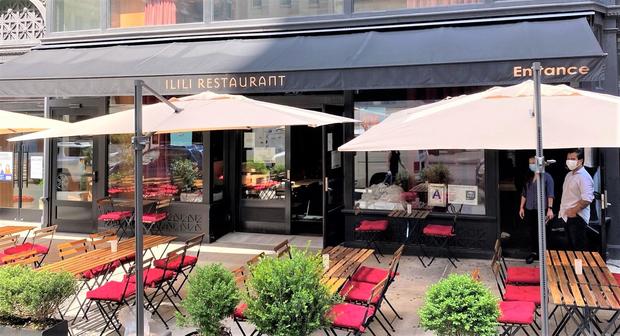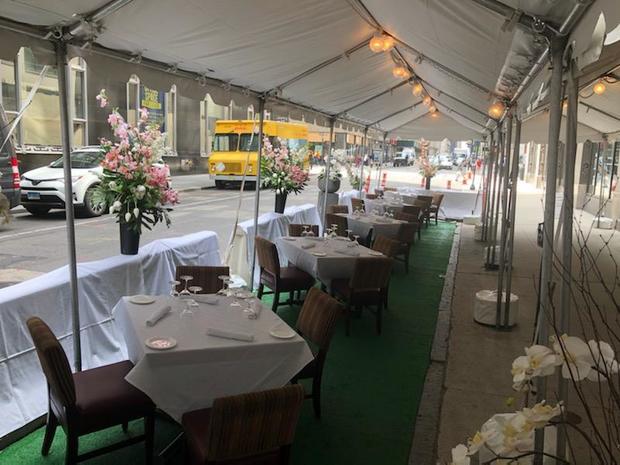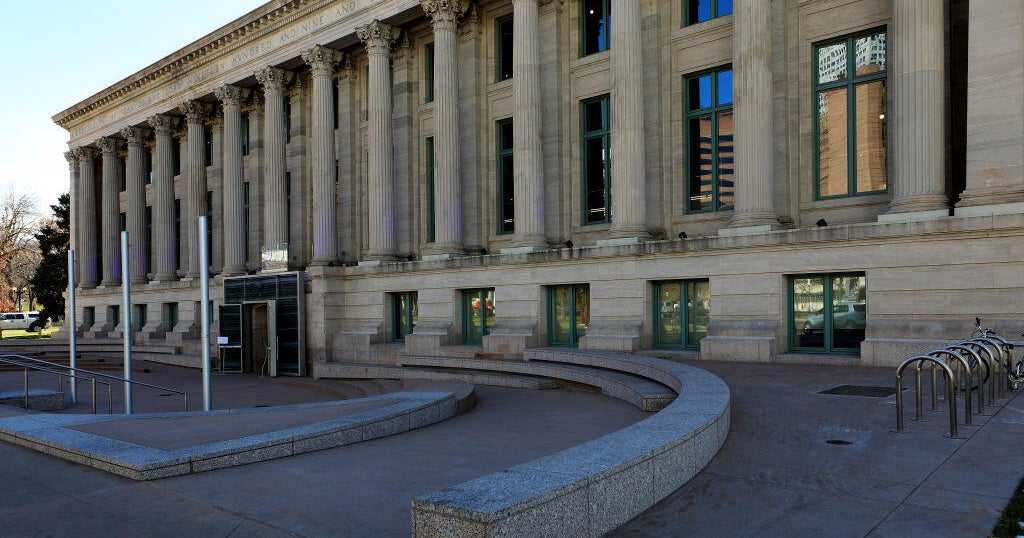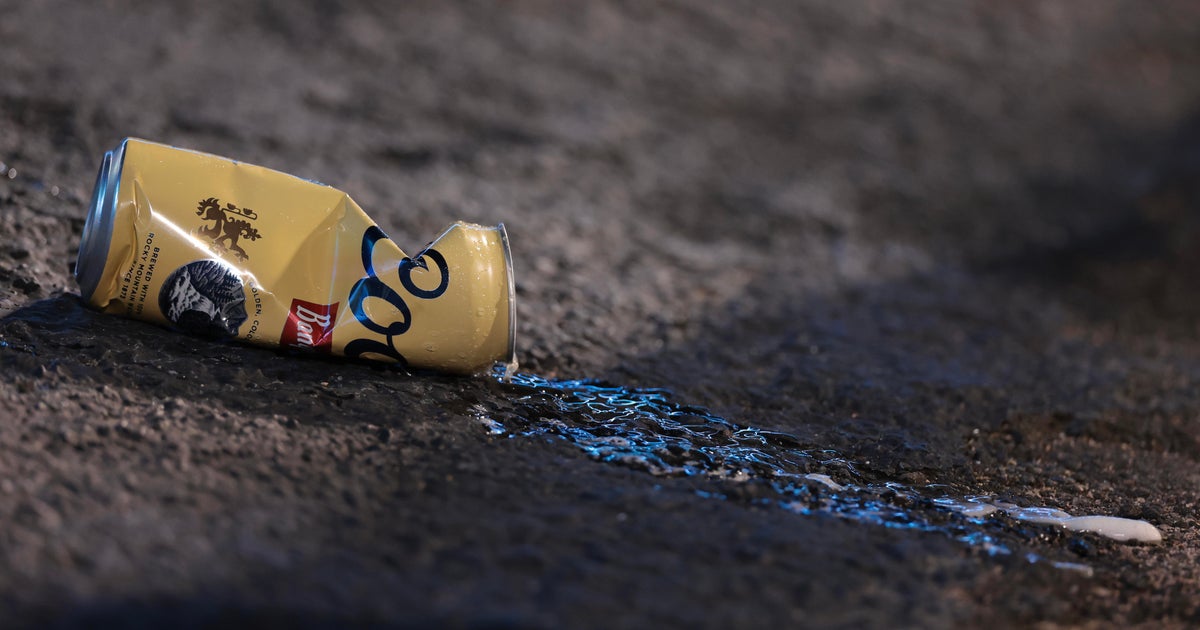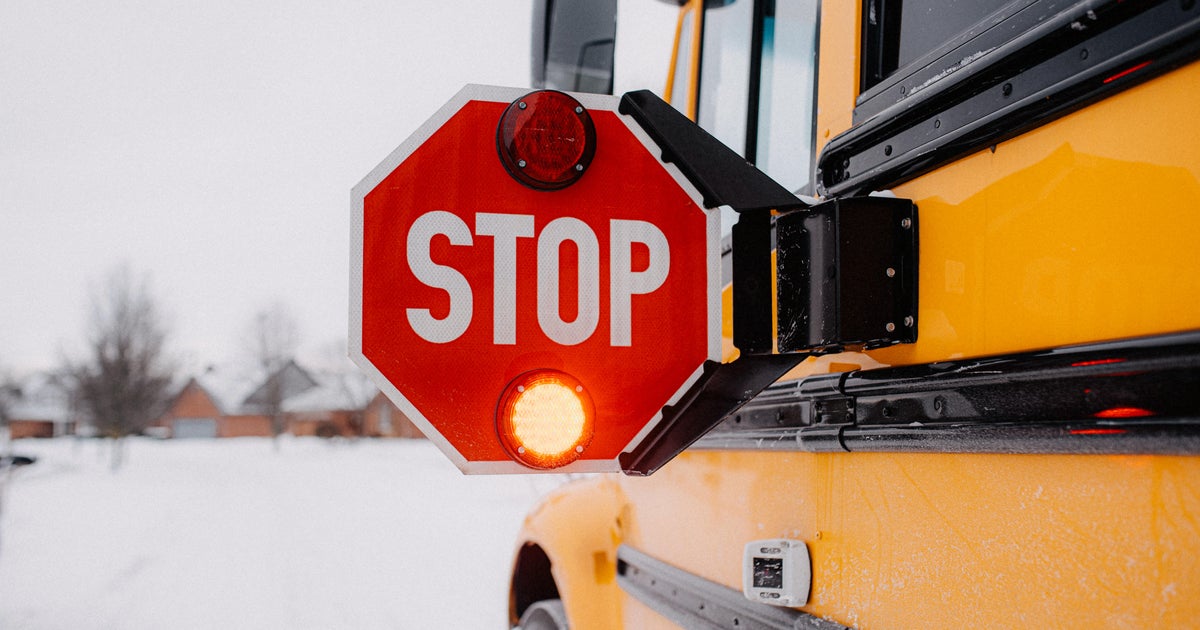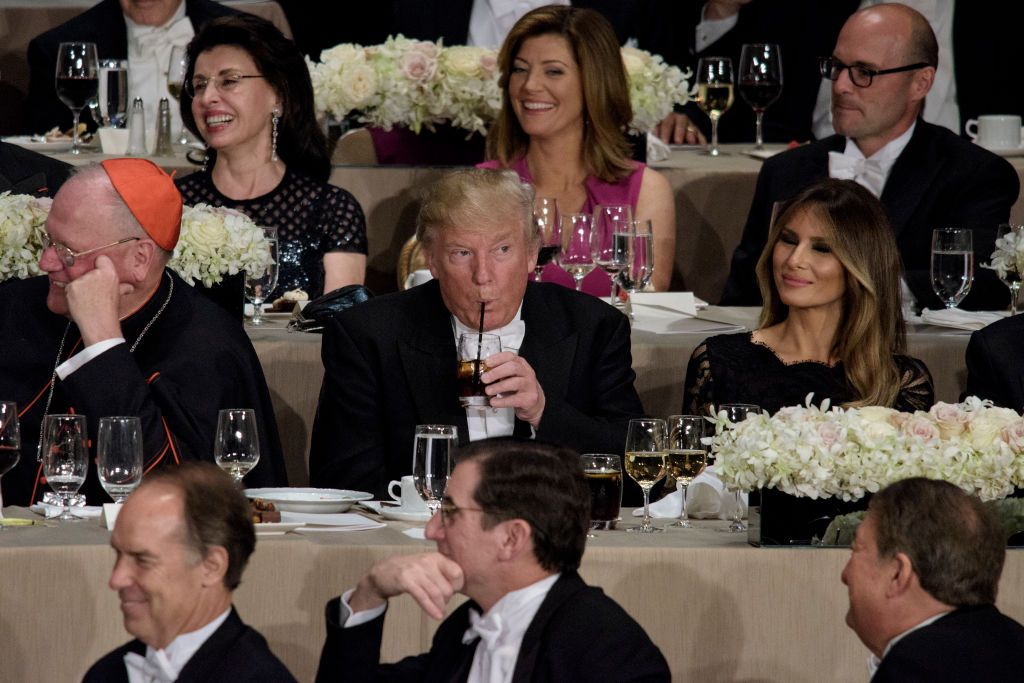Indoor dining delays could be final straw for many restaurants
Cities across the U.S. are delaying plans and reversing orders to allow restaurants to open for indoor dining, marking the latest setback for one of the hardest-hit industries as COVID-19 continues to spread across the country.
With outdoor dining permitted, many restaurateurs have expanded their seating onto sidewalks, even spilling into local streets to lure passersby. But a few measly chairs alone can't carry them through the seemingly unending interruption caused by the coronavirus pandemic.
"Anybody that thinks that outdoor dining is a solution needs to have their head examined," said Philippe Massoud, owner of Ilili, a Lebanese restaurant near Madison Square Park, after New York City Mayor Bill de Blasio late last week said the city would not allow indoor dining to resume after the July Fourth weekend.
The decision to pause comes after cases recently climbed in communities where restaurants had already reopened, in states such as California, Florida, Pennsylvania and Texas.
Massoud was disappointed about the course reversal, after investing in training sessions for employees and purchasing perishable food items — all to prepare to open for indoor dining this week.
"We had set up training sessions, started preparing some sauces, ordered our butcher cuts, and then we had to slam on the brakes," he told CBS MoneyWatch. "While safety is our priority, we don't have the ability to do these starts and stops because they cost us a lot of money," he added.
Instead, he'll rely on a combination of take-out and delivery orders and extended open-air seating, allowed through New York City's summertime "Open Restaurants" program.
Restaurants can temporarily expand seating onto sidewalks and streets to allow for social distancing, so long as they create protective barriers using planters or similar objects that block seating areas from auto and bicycle travel lanes. Roadway seating is allowed through September 8.
And so restaurant owners like Massoud have invested thousands of dollars in building attractive outdoor environments. After all, it's one of few accommodations that gives them a fighting chance of surviving.
Massoud said he's already spent about $5,000 expanding an existing outdoor cafe. He sunk another $8,000 into planters, chairs, umbrellas and other design elements that comply with the new initiative's safety guidelines.
He's committed to giving the new way of doing business a shot — if only for his staff and customers. He doesn't expect to be profitable again without substantial, long-term aid in the form of total rent relief and business-interruption insurance payouts.
He did receive a loan through the federal government's Paycheck Protection Program, without which the restaurant would have already gone out of business, he said.
Normally a 260-seat eatery, Ilili will open for outdoor dining on Wednesday with just 24 seats.
"The math doesn't make sense"
The postponement of indoor dining could mean throwing in the towel for some restaurant owners.
"We are hearing countless restaurants are already closing. People are going to now decide, 'I can't hang on any longer,'" said Andrew Rigie, executive director of the New York City Hospitality Alliance, which in May surveyed nearly 500 restaurants, bars and nightclubs about reopening.
The city is home to more than 25,000 eating and drinking establishments that employed roughly 300,000 people pre-pandemic, according to latest economic impact study from the Mayor's Office of Media and Entertainment. That count doesn't include restaurants that are only open for brunch and lunch, according to Rigie.
Nearly 4% of restaurants surveyed by the Hospitality Alliance said they expected to close permanently as a result of COVID-19. But another 53% said they don't know if they will ever regain their footing.
And for those owners that do give outdoor dining a shot, profitability is essentially off the table.
Massoud —a self-described realist with a background in finance — doesn't expect to turn a profit anytime soon. In fact, he would be surprised if he were even able to recoup his investment in the outdoor cafe, whose menu includes dishes ranging from $18 brussels sprouts to a $65 whole organic chicken.
"The game is not about making money. The game right now is to lose the least amount of money so you can stay open for as long as possible until there is a brighter day," he said.
Assuming a relatively low profit margin of 3%, Massoud estimates he'll need revenue of $266,000 over the eight weeks during which he's permitted to operate, just to recoup his $8,000 investment. "That's impossible, the math doesn't make sense," he said.
That would equal about $33,000 in sales per week, or $4,700 per day, spread out over only 24 seats. Where he used to do 400 covers a night, he'll now do just 20.
"There is no way on planet earth you can recoup your investment, and that's not even counting the days you'll be shut down because of the weather, like if it's raining or excessively hot," Massoud said.
He'll stick it out for the near-term and reassess his reopening prospects in eight weeks.
"If it rains it's over"
Benjamin Prelvukaj, the co-owner and co-founder of Benjamin's restaurant group, has three restaurants in New York City, one of which will open for outdoor dining on Wednesday.
Prelvukaj spent $15,000 on a tent for Benjamin Prime, a 275-seat restaurant near Grand Central Terminal, that will have outdoor seating for 40 people.
He's trying it out, but stressed that without indoor dining, his restaurants won't survive, for one because outdoor dining is weather dependent.
"We are going to open, but the problem is it's July and it's hot and humid outside. I don't know how people are going to feel about eating in 100 degree weather outside," he said. "And if it rains it's over. Everyone is going to leave and everything is going to go down the drain."
The message from owners is clear. Without more help, or unless the virus subsides, it's over for many restaurants.
"We are in the ICU on the operating table, our pulse is declining, the monitor is blinking. Please help us," Massoud said.
